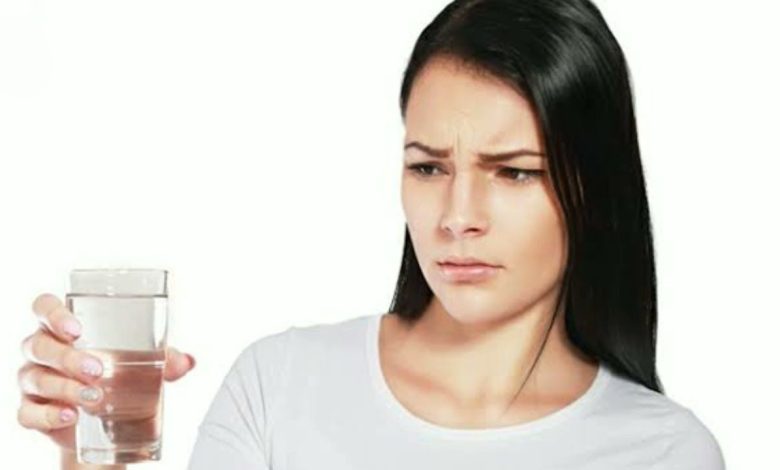Increased feeling of thirst, polydipsia: What's it, causes, symptoms, diagnostics, treatment, prevention

Thirst – excessive; Increased thirst; Polydipsia; Excessive thirst
What is excessive thirst?
Excessive feeling of thirst, medically called polydipsia, there, when a person has too many thirst signals. Excessive thirst is the urge to drink more liquid., what the body needs or what is considered healthy. In most cases, this is the body's way of replacing fluid loss during the day.. Thirst can be incessant, obsessive craving for a sip of water or any other liquid.
In most cases it is good to drink plenty of water.. The desire to drink too much may be the result of a physical or emotional illness.. Excessive thirst can be a symptom of high blood sugar (giperglikemii), what can help diagnose diabetes .
Excessive thirst is a common symptom. Often this is a reaction to fluid loss during exercise or eating salty foods..
Causes of excessive thirst
Excessive thirst is usually a sign of a medical problem., which needs to be resolved.
Reasons may include:
- Recent salty or spicy food
- Bleeding, sufficient to significantly reduce blood volume
- Diabetes
- Nesaharnыy diabetes
- Medicines, such as anticholinergics, demeclocycline, Diuretic, fenotiazinы
- Loss of body fluids from the bloodstream to tissues due to such conditions, like severe infections ( sepsis ) or burns, or cardiac, liver or kidney failure.
- Psychogenic polydipsia (mental disorder)
Below are details about some of the common causes of excessive thirst..
Dehydration
Dehydration is the most common cause of excessive thirst. This condition usually occurs, when the body loses more fluid, what gets. Causes of dehydration include not drinking enough fluids due to decreased appetite, vomiting, diarrhea, excessive physical exertion, extreme heat or fever.
Diabetes
Excessive thirst may be a sign of diabetes. In type 1 and type 2 diabetes, the body does not produce or use insulin effectively, and this can lead to accumulation of glucose in the blood. The body tries to remove this excess sugar, excreting it in the urine. This increased urination causes dehydration, along with excessive thirst.
Medicines and diseases
Some medications are another cause of excessive thirst., having a diuretic effect on the body or causing dehydration as a side effect. Medical conditions, such as kidney failure, gipotireoz, adrenal insufficiency and certain neurological disorders, can also cause intense thirst.
Symptoms of excessive thirst
Excessive thirst is most often characterized by increased urination and dry lips., mouth and skin. Additional symptoms may also include fatigue, confusion, headaches and dizziness.
When to see a doctor
If you experience excessive thirst and other symptoms, such as frequent urination, severe fatigue, headaches or confusion, it is important to see a doctor as soon as possible. Excessive thirst may be a symptom of a more serious condition, and should be evaluated and treated appropriately.
Questions, that your doctor may ask
When visiting a doctor to discuss excessive thirst, you may be asked the following questions::
- How long have you been intensely thirsty?
- How much water or other liquids do you drink daily?
- Are you experiencing any other symptoms besides extreme thirst?
- Are you taking any medications or have you been sick recently??
- How long have you noticed an increase in thirst? It developed suddenly or slowly?
- Your thirst stays the same all day?
- You have changed your diet? You eat more salty or spicy foods?
- Have you noticed an increased appetite? ?
- Have you lost or gained weight, not trying?
- Has your activity level increased??
- What other symptoms occur at the same time?
- You have recently suffered a burn or other injury?
- You urinate more or less often, than usual? You produce more or less urine, than usual? Have you noticed bleeding??
- you sweat more, than usual?
- Is there any swelling in your body?
- you have a fever?
Diagnosis of excessive thirst
To diagnose excessive thirst, your doctor will first conduct a physical examination, and then, usually, order a series of tests to check for underlying diseases, such as diabetes.
Tests, who may be assigned, include:
- Blood glucose level
- General and differential blood tests
- Serum calcium level
- Serum osmolarity
- Serum sodium level
- Analysis of urine
- Osmolarity of urine
Treating Excessive Thirst
Treatment for excessive thirst will depend on the underlying cause.. If the cause is something like dehydration, it is usually sufficient to drink more fluids, to relieve excessive thirst. Treating thirst for other reasons may include medication, lifestyle changes or insulin therapy, depending on the specific disease.
Home treatment for severe thirst
In most cases, treating excessive thirst at home involves drinking more fluids.. Some steps, you can take, to increase fluid intake and avoid dehydration, include:
- Drink plenty of water throughout the day.
- Drink liquids that are low in sugar, such as herbal teas or clear soups.
- Limit your caffeine and alcohol intake.
- Eat fruits and vegetables that are high in water, like watermelon and celery.
- Suck on sugar free lollipops.
- Avoid sugary drinks, caffeinated and alcoholic beverages.
Prevention of excessive thirst
To help prevent excessive thirst, it is important to avoid dehydration and limit sweet, caffeinated and alcoholic drinks. You should also try to minimize exposure to extreme heat and eliminate underlying diseases., such as diabetes or hypothyroidism. Besides, it's important to talk to your doctor, if you are taking any medication, which can cause dehydration.
Used sources and literature
Al-Awqati Q. Disorders of sodium and water homeostasis. In: Goldman L, Schafer AI, eds. Goldman-Cecil Medicine. 26th ed. Philadelphia, PA: Elsevier; 2020:chap 108.
Mortada R. Diabetes insipidus. In: Kellerman RD, Rakel DP, eds. Conn’s Current Therapy 2021. Philadelphia, PA: Elsevier; 2021:290-293.
